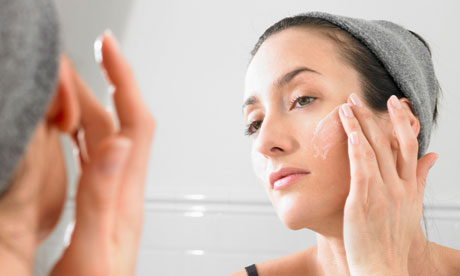
Go to a dermatology clinic and chances are you'll see more than one person with a sore, red, swollen or blistering face. The most likely cause? An allergy to their face cream. Dermatologists at their annual conference last week warned of an epidemic of what they call allergic contact dermatitis (inflammation of the skin caused by allergic reactions). They warn it's caused by a preservative in face cream which is also found in many other products, including suntan lotion, soap, deodorant and even baby wipes. The name of this preservative? Methylisothiazolinone – or MI for short.
It's not a new compound but it has only been used on its own, instead of with other preservatives, for the past five years – therefore its concentration in individual products has increased. In one clinic at St Thomas's hospital in London there was just one case of allergy to MI in 2010, but 33 in 2012.
People typically develop an allergy to MI over a few days, but it can be delayed. The allergy is caused by your immune system waging war against a specific substance on the surface of your skin – making it oversensitive when the chemical is applied again. No one knows why allergies develop in some people and not others, or why you can develop allergic dermatitis from a substance you've been using happily for years. So should you start checking labels, just in case?
The solution
You should definitely check, says Dr Jason Williams, consultant dermatologist and director of the contact dermatitis investigation unit at Salford Royal Foundation NHS Trust. He said that 10% of his clinic patients who have patch tests are shown to have allergies to MI. Sometimes, he says, people don't realise it's the cream that's to blame for their itchy skin, and rub even more on. "MI is being used on its own in 100 parts per million. This is a much higher concentration in creams than there used to be – which was five parts per million," he says. "I would look at labels; reactions can be severe. Generally, the fewer chemicals on the label the better. But organic creams are not always better, as plant extracts contain fragrance allergens that can cause contact dermatitis. It is better to go for unfragranced creams."
Treatment consists of stopping use and usually applying steroid cream to your skin – but it can take some weeks for things to get back to normal. If you do develop a red, swollen, itchy, rash-ridden face, then you should get patch tested (results take a week) so you can avoid whatever caused it.
No comments:
Post a Comment